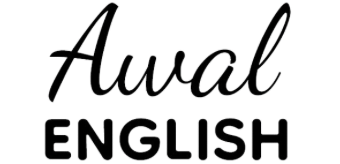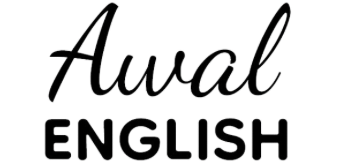Asking a question about your strengths is very common in job interviews. Sometimes this question is moulded or asked indirectly. Even if the question is not asked directly, you should be able to talk about your strengths.
From the perspective of an interviewer, the main point of the interview is to know what you can do for the organization and why they should hire you instead of other candidates.
Every candidate should be prepared to talk about his/her strengths. Many candidates have a good hold on subjective knowledge, but they are not able to tell about their strengths well. This is an opportunity for you to describe your strengths well and stand out from the crowd. This little attention can help you get a job.
Why Does the Interviewer Ask About Strengths?

Interviewers ask such questions because it is their job to find someone who can perform well in the position and get along with the co-workers. They try to know if you will be able to fit in at work. There is no doubt that an interviewer is responsible for getting the vacant roles or positions filled with worthy people, that is why the person on the other table becomes very keen on details and does not leave space for confusion. Usually, the interviewer tries to know if your strengths are suitable for the company and fulfill the requirements of the job position.
Talking about the strengths is not just talking about where you are strong, but it is to show the employer that you are capable of handling the job with ease, and you can offer them better productivity for the assigned tasks. We are humans, and we tend to commit mistakes on the first attempt. Read ahead to know more about the common mistakes and how to work on them.
What to Avoid While Talking About Strengths?

Some candidates think that questions about strength are easy and do not relate to the job. Questions related to your strength are kind of prompts for you to sell yourself as the best candidate for the job. You can do this very well if you know about yourself. Unfortunately, many candidates fail to prepare for this properly and overthrow themselves. I still remember a person who said that he had a lot of strengths related to the job, and he named a lot of the skills, but he could not prove them.
Below are some common mistakes made by several candidates that I have observed in my tenure:
Absence of Self-Awareness
Many people who look for a job do not give themselves enough time to understand their strengths. We need to understand what types of qualities are required for a specific job. Understanding your strengths will help you serve well in the job interview and make your life easy as well. There are so many online self-assessments where you can participate and get some clarity. If you do not feel you have a fair sense of your job-related strengths, you should give yourself time to understand them. You can ask your friends or family members to help you assess yourself and then move ahead for self-assessment after you have some idea about your abilities.
Reserved Nature
Most candidates are too shy, or they are not comfortable with speaking about what makes them a great fit for a particular job. Introverts have a reserved nature and usually, they face this situation or people who never actually had to sell themselves earlier because new jobs always fell in their bucket in the past. Remember, your lucky charm may not be there to save every job interview and land you a job without any preparations. You have to get over any nervousness to say good things about yourself that prove you are a good fit for the job. If you prepare in advance, you can deliver your strengths in a way that feels suitable and genuine to the recruiter.
Wrong Choices
I have observed many candidates sharing strengths that do not help them stand out from their competitors. Sometimes candidates share strong strengths that they are not good at. Sharing wrong information can surely put your candidature in doubt. Some people choose to talk about the strengths that are not related to the job or are very common among the candidates. For example, I smile widely, or I take breakfast on time. These are the strengths that do not matter in securing a job.
How to Talk About Your Strengths in The Interview?

It is important to figure out and know your strengths and practise talking about them before an interview. When you practice in advance, you will be ready to face questions related to strengths easily. You will be more confident when attending your interview in person to have that job. A few pointers are mentioned below that will help you learn how to figure out your strengths:
Analyze First
I would suggest that you sit down and make a list of your top three to five strengths. Sometimes, the interviewer can ask you a specific number of strengths. For example, tell me about your top five strengths or tell me your top three strengths. It is better to have at least five relatable strengths. Do not try to beautify the words in the initial phase of preparing the list. Just write the strengths you possess and are related to the job profile. After that, you can filter out extra or irrelevant information. Your strengths can be your prior experience related to the job, any specific talent, soft skills, and education or training related to the job profile. You can include strengths from these fields.
- Experience– To have an experience in working with a specific software or tool is always prefered by employers over other things. If you have a proven track record of working in a particular domain, it will show your expertise in that area. For example: If you have built designing tools at an architecture firm, then your profile will be prefered for the role of a digital designer of building structure.
- Talent – If you have any talent related to the job, then it is a perfect add-on to your strengths that you can talk about in your interview. For example: If you have worked for an event management firm, and this new job requires you to manage events within the company, your candidature will be prefered over other candidates by the employer. This happens because you have prior knowledge and talent to manage situations.
- Soft Skills – Soft skills include problem-solving, empathy, communication skills, negotiation, and team coordination. These skills help the interviewer understand that you are compatible and ready to deal with co-workers and clients. Make sure that these soft skills are shown indirectly in the interview session.
- Education and Training – Relevant course certification for the job profile makes a great impact on the employer. You can mention your degree or certification, internship, and other job-related work experience as an advantage.
If you can not find the job-related strengths, write down the positive qualities or personal strengths that you possess. Once you have figured out your positive strengths, then you can relate them to the job profile. It is better to relate your abilities to the job requirements to make it easier for the recruiter to make an informed decision.
Narrow Down Your Strengths to Two or Three
Once you have prepared a list of skills and strengths related to the job, you can cut down the numbers to a minimum of two or three qualities. By doing this, you will avoid talking about less relatable skills or strengths. You may not need to talk about all of your strengths in an interview, but it is always better to be prepared and have options.
How to Select The Right Strengths?

Selecting the right strengths can increase your chances of getting a job. Make sure to keep the points that are mentioned below in mind while you choose your specific strengths:
- Be specific: Choose specific strengths that are related to the job directly or indirectly. Be ” the real you” in the job interview. You should be specific when you share anything about yourself.
- Choose relevant strengths: I would suggest you read the job description and identify your core strengths according to the job requirements. Try to be the most professional version of yourself while choosing your strengths.
- Do not fudge: Make sure you choose the strengths that you possess. Never pick out a specific strength because it is written in the job description. Also, do not choose any set of strengths because it worked for one of your friends in his or her interview. Each interview session is unique, so what worked for others may not work for you.
- Show to bring more: Just talking about strengths does not work in the interview. Convince the interviewer that you will bring more to the position.
- Be ready to illustrate: When you have finished all of these points above, you need to make sure that you have some examples ready to back each of your strengths. Practice presenting your skills in advance, so that you can talk about them seamlessly.
If the interviewer does not ask you about your strengths directly, he may ask indirectly. You need to be conscious of the entire interview process. Some other questions indirectly start a conversation about the strengths like:
- Why should I hire you?
- Do you think you are a good fit for the job?
- What makes you the best fit for this role in our company?
We should go to every interview with one clear goal, that is we need to communicate clearly. If you are not asked any of these questions about your strengths, you can find a relevant point to start the conversation by yourself. Some interviewers like to ask general questions, and that is where you can attach your strengths with your answers.
I hope this guide will be useful for your interview preparation.




0 responses on "A Guide for Strength-Related Interview Questions"